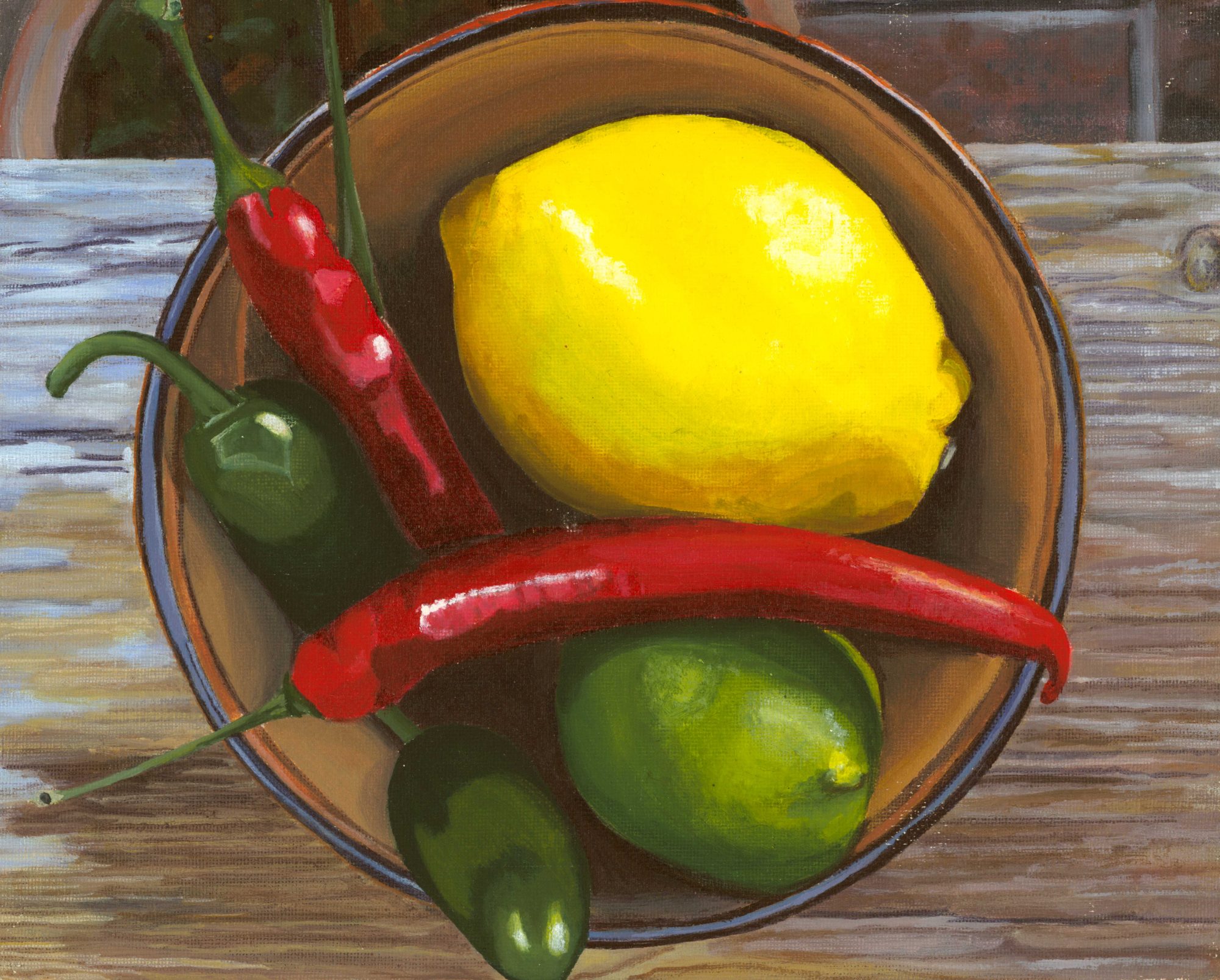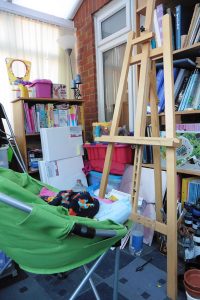Working conditions
It’s hard to get any painting done at the moment. My easel is set up among all the junk in the conservatory, and it’s not quite a salon at the best of times, but just now it’s just too cold and dark to paint out there. I can clear the table and work indoors, which is warmer, but then there’s sod-all natural light and I’m in everyone’s way. Plus paint gets on the furniture.
I’ve mostly been trying to organise stuff for the summer instead, but that’s just paying out money and filling in forms. There are about eight thousand photos to sort through. But I just want to get back out there with the kids’ plastic tat no one can bear to throw away, and get on with it.
Already Gone
Taking pictures down is massively quicker than putting them up. Fifteen minutes and the whole lot are down and packed up. It all fits into one big carrier bag.
The lady who organises the displays comes over to say hello and thanks. “People have been looking at them,” she tells me. Good.
Working Music
Painting, as far as I’m concerned, can only properly happen in conjunction with two other things: playing quite loud music and drinking tea. Some people insist that music destroys concentration, that you can’t do anything properly while your attention is divided; but if I paint without it I tend to start muttering irritably to myself, especially during the tedious finishing-off bits at the end; so music is better. But albums don’t last long enough, and radio tends to involve people talking, which I don’t want. Once mixtapes did the job, but now it’s their modern incarnation: the playlist.
I have a library of sprawling, haphazard playlists on Spotify, hours long, and every year I will make another one, adding new releases and discoveries as the year goes on, weeding out those that turn out to be irritating. After a while they sort of bed in mentally, so that I’m only half-aware of hearing the songs, and that seems to be the most useful state for them, just taking the edge off the concentration enough to pacify the inner toddler, so that the work can get finished.
This year’s has felt a bit thin, although it runs over six hours, and there are probably more that will get deleted – I am still reaching out to skip tracks . But now it’s time to start the next one…
If you have Spotify, you can access the playlist here:
https://open.spotify.com/user/oswaldamy04/playlist/2uIWhfhI5DAgvLr5gMetW9
Or here’s a pdf list.17 playlist
The tea is a lot less curated – there needs to be lots of it, it’s better hot, and best of all if someone else makes it.
Treasure
After all the rushing about, hanging pictures and end of term, presents bought and sent, office lunches and class parties and generally trying to fit a year’s worth of socialising into two weeks, it has been good to just park my arse on the sofa and watch some television. Over the last day or two, watching the last half of the last series of The Detectorists.
I like everything about it, and have done since the first series: the writing, with its beautiful timing and sly absurdity, the acting, the score, Johnny Flynn’s perfectly simple title track.
It is deft and understated and charming. It looks gorgeous and knows it, framing the Suffolk countryside (the fictional town of Danebury is in Essex, but many of the locations are around Framlingham, halfway between Southwold and Ipswich) to showcase it, even in the rain. I even like the fact that this is the last series – the treasures have been found against all odds, after all. Twice.
I’m hardly alone in liking it, with all its awards and famous fans, but I’m especially fond of it because my grandparents lived in Cambridgeshire and my father for a while in Burwell, and I remember this countryside from when I was a child. In the summer holidays we walked across it, lolled about with lemonade and crisps in pub gardens in the wonky pink and white villages, and watched it go by through bus windows on our way to Newmarket, Bury St Edmonds, Hunstanton and Felixstowe. My grandparents were Londoners but Grandma had been evacuated out to Swaffham Prior in Cambridgeshire during the war, and some years afterwards they moved back out, and stayed for the rest of their lives.

